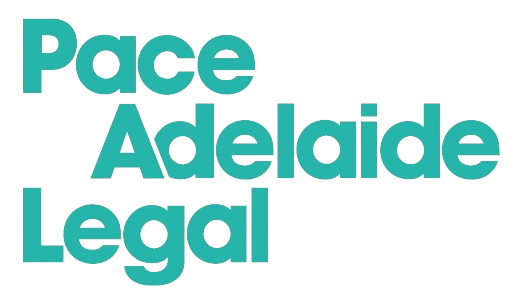What Is Disparagement?
Simply put, in this context – disparagement means publicly saying or writing (for example, on Facebook) negative comments which are criticising a business, it’s property or products and services.

The Legal Definition of disparagement is:
The publication of false and injurious statements that are derogatory of another’s property, business, or product — called also business disparagement, commercial disparagement, disparagement of property, slander of goods, trade libel.
What Are Non-disparagement Clauses?
Non-disparagement clauses are those, which prevent customers writing online reviews about their experience with a certain company.
What do they aim to achieve?
The aim to prevent customers from writing bad Google Reviews, Facebook Reviews or indeed reviews on any social media site, review site or forum.
Why Would These Clauses Be Desirable?
Bad reviews are bad for business. A large proportion of people read online reviews before engaging with a business. This can be as high as 88%. So by preventing customers from writing bad reviews a business aims to prevent potential future customers from being put off.
Do You Think This Right or Fair?
As a business owner the idea of preventing any negative feedback from being broadcast to the public is appealing. After all, as a business owner, you will very aware of how negative comments online can damage your business reputation.
How Does The ACCC View This Practice?
The ACCC has been finding such ‘non-disparagement’ terms to be “unfair” and therefore void from the contract.
What Are Unfair Contract Terms?
The Australian Consumer Law (ACL) makes small business contract terms void when the terms are unfair and the contract is in standard form.
(ACL) (Found in Schedule 2 of the Competition and Consumer Act 2010 (Cth))
For further discussion and to unpack the meaning of unfair contract terms, see one of our previous blog posts “Is Your Contract Unfair?”
What Is The ACCC’s Concern?
The main concern for the ACCC is that, by preventing negative reviews a business is not allowing potential customers from getting a balanced view of a product or service.
As A Business Owner – What Should You Do?
If you have any similar clauses in any of your contracts or you are considering adding any such terms, consult a lawyer.
If you are considering suing someone for a breach of a non-disparagement clause in a contract and your lawyer is encouraging this, it may be wise to consider a second opinion.
Case Studies
Below are 2 recent case studies, which illustrate how the ACCC views non-disparagement clauses and why, as a business owner, you should seek advice from an experienced professional, before adding any such terms to a contract or taking a customer to court for breach of these terms.
Non-Disparagement Case Studies
The following case studies will help explain how disparagement clauses are viewed as unfair by the ACCC.
Case Study
Wisdom Properties Group Pty Ltd (Wisdom Homes) is a New South Wales company specialising in building residential homes. Over a ten-year period (2008-18) they entered into standard form contracts with their customers containing non-disparagement clauses which:
• Prohibited customers from making any announcement, blog, public statement or article for publication about the agreement or the services provided pursuant to it, whether in electronic form or otherwise without prior written consent of Wisdom Homes
• Entitled Wisdom Homes to determine the timing and wording of any (approved) publication made by customers
• If any loss did occur resulting from the publication made by a customer, the customer was to indemnify Wisdom Homes
• Wisdom Homes was provided with the right to commence any action against a customer in relation to their publications even if they had been authorised by Wisdom Homes.
So What Did The ACCC Do?
The proceedings were resolved by the ACCC accepting a court enforceable undertaking from Wisdom Homes that they will:
• Ensure future Agreements, for a minimum period of three years, do not include the Non-disparagement clauses, or clauses of a similar effect
• Not enforce or rely upon the Non-disparagement clauses, or clauses of a similar effect, for all customers that have signed an Agreement that includes the Non-disparagement clauses
• Publish a corrective notice on the Wisdom website
• Issue a corrective consumer letter to all affected customers who signed an Agreement with Wisdom since 1 January 2015
• Establish and implement an ACL Compliance Program.
Other cases:
This is not the first time the ACCC has claimed that non-disparagement clauses are unfair. Prior to this, the ACCC took action against 101 Residential Pty Ltd (“101 Residential”), another residential building company, this time based in Western Australia.
The company had similar contractual terms that prohibited customers from publishing any “material which is or may be disparaging or harmful to the business interests of” 101 Residential without their consent, including “any online posts, blogs or comments that do, or may reasonably be inferred to, relate to” 101 Residential. Again in this case, Residential 101 gave a court enforceable undertaking to the ACCC undertaking that:
• 101 Residential will not include in its Building Contracts clauses that prevent or prohibit consumers from publishing or disseminating genuine feedback and/or information relating to Residential or home building services provided by 101 Residential
• 101 Residential will not include in its Building Contracts clauses that impose condition or sanction on consumers for publishing or disseminating genuine feedback and/or information relating to 101 Residential or home building services provided by 101 Residential, including but not limited to suspending work on a consumer’s building site or terminating a consumer’s Building Contract.
• A corrective notice was to be published on 101 Residential’s website for 60 days (this has since been removed)
• Other undertakings related to 101 Residential’s liability and representations were also made.
Are these terms actually ‘unfair’ under the ACL?
Some debate has ensued on whether disparagement clauses actually fulfil the requirements for a term to be deemed ‘unfair.’
Putting this aside however, the ACCC has publically stated: “Any standard form contract terms that prevent or limit a customer from making public comments about goods or services are likely to be unfair under the Australian Consumer Law.”
Further that “This outcome should serve as a warning to other businesses that imposing contract terms that prevent their customers from making public comments will attract ACCC attention.”
Why is the ACCC concerned?
The ACCC’s concern was not actually whether customers who entered into the agreement suffered any loss but instead that potential customers are losing the opportunity to source negative reviews about Wisdom Homes.
ACCC Deputy Chair Dr Michael Schaper stated in relation to the undertaking of 101 Residential “Online reviews help people make informed purchasing decisions. Consumers should be free to have their say about their experience with a business and must not face penalties.’
These non-disparagement clauses prevent customers from posting online and consequently restrict others’ ability to access balanced reviews, conduct which the ACCC is becoming increasingly troubled with.
They successfully brought an action against Meriton Property Services Pty Ltd for manipulating Trip Advisor to decrease the possibility of customers posting negative reviews on the site; however, this action was regarding misleading and deceptive conduct not unfair contract terms. The principle behind the action was comparable though, in that the rights for consumers to access information about goods and services is one that should be protected.
Conclusion
If you need assistance navigating your small business contracts our team at Pace Lawyers are here to help. For further information please do not hesitate to contact Shavin Silva Associate Lawyer here or on 08 84109294.
